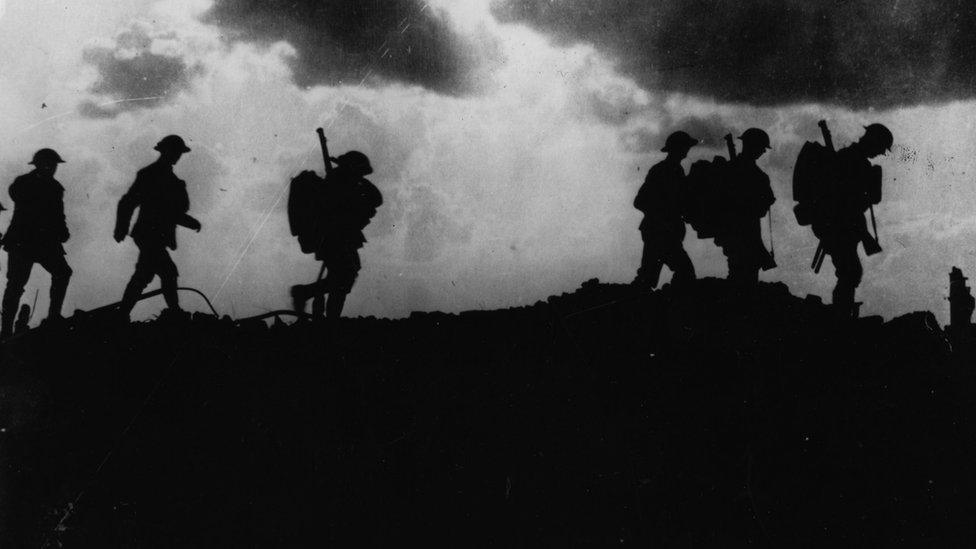Battle of the Somme: Thousands gather for solemn ceremony to remember fallen
- Published
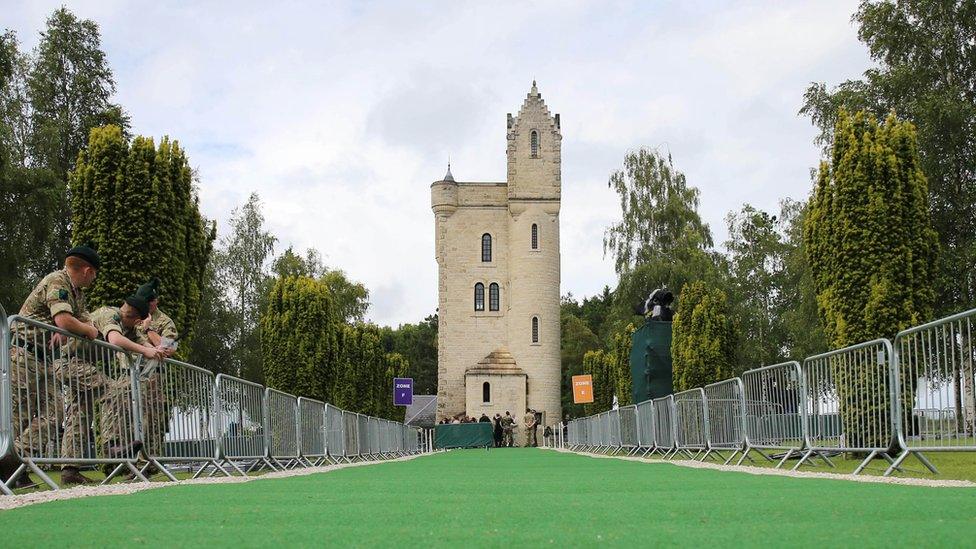
When the first guests arrived at the Ulster Tower in northern France on Friday morning, the atmosphere was convivial and almost festive.
Many smiling faces had their photo taken in front of the tower, with poppy-spotted fields behind them.
Some had arrived in military uniform, others wore rows of medals belonging to those they were here to remember.
But as the commemoration drew near, there was no mistaking the reverence and solemnity of the occasion.
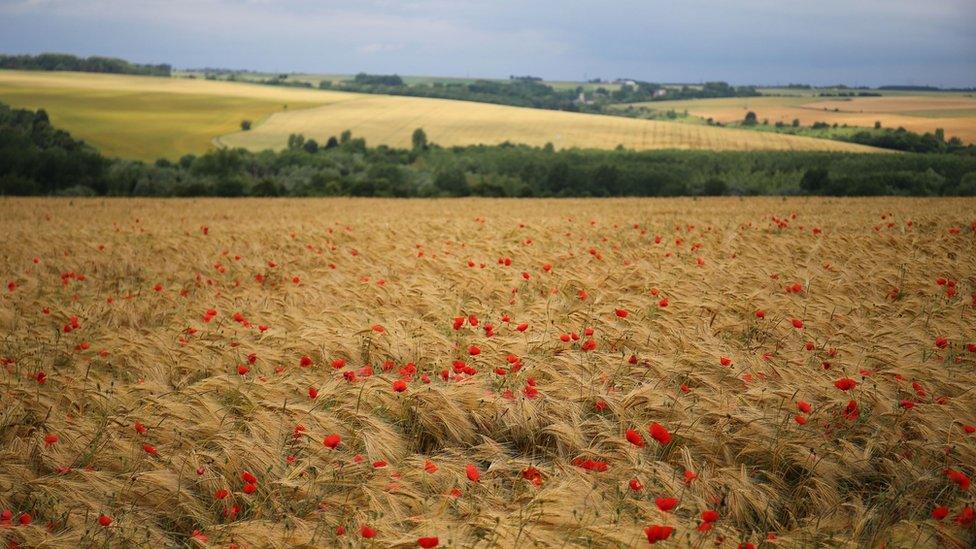
Poppy fields close to the Ulster Tower were a poignant sight for those who gathered for the ceremony
For many, this was a personal journey to pay tribute to the thousands of Irishmen killed at the Somme.
Lost relatives were remembered by families who travelled hundreds of miles and spoke of the emotional impact that being at the ceremony would bring.
The remembrance event began early on Friday, when the Royal Irish Regiment marked the moment the men went over the top from Thiepval Wood 100 years ago.
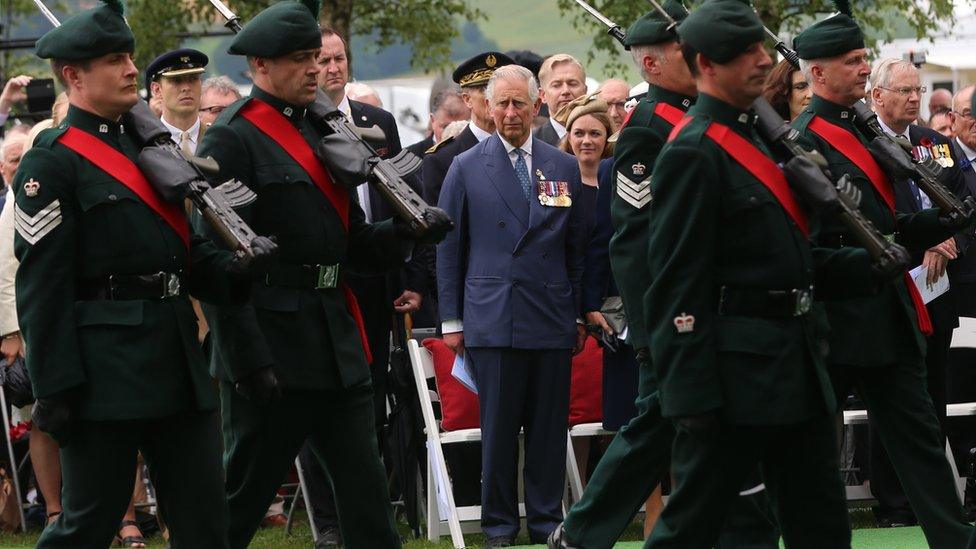
Prince Charles was among those paying respects to the men of the 36th (Ulster) Division
A whistle was blown at 06:30 local time to signal the moment of advance.
The regiment laid a wreath in Connaught Cemetery, a graveyard with more than 1,200 men buried in it.
More than half of those men are unknown.
The quiet ceremony, with few onlookers, was in contrast to the main commemoration in the afternoon.
Organised by the Somme Association, it featured leading figures in the main Christian denominations of Ireland as well as Archbishop of Canterbury Justin Welby.
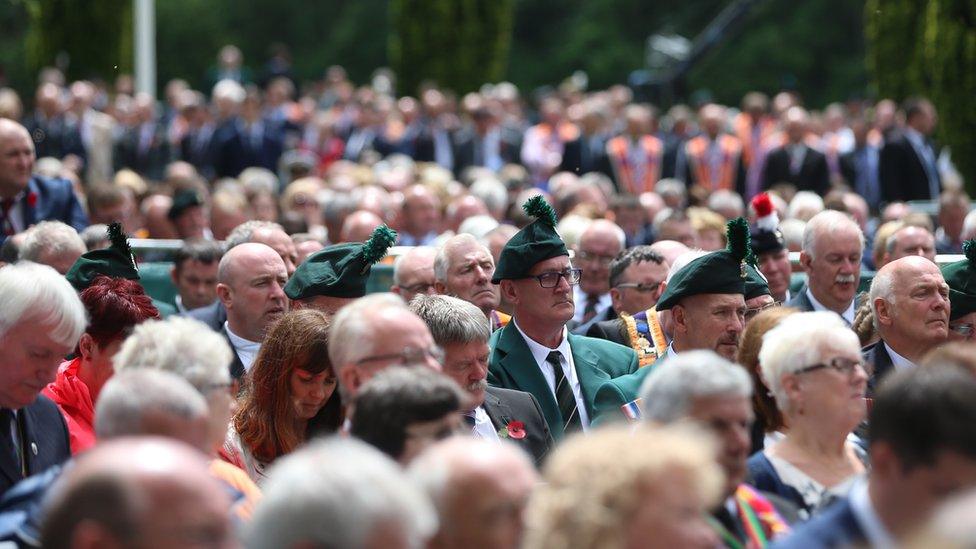
Some of those who attended the ceremony wore military uniform, others wore medals belonging to their loved ones
About 2,500 people - including Prince Charles, the Duchess of Cornwall, Northern Ireland Secretary Theresa Villiers and First Minister Arlene Foster - gathered to pay their respects to the men of the 36th (Ulster) Division who died at the Somme.
Among the crowd was John Boyle, whose grandfather Jack Rutherford fought at the Somme.
Last week, we reported on how a recording of Jack's story had recently emerged.
"It's the first time I've been here," John said.
"In fact, I think it's the first time any member of my family, extended family included, has ever been here.
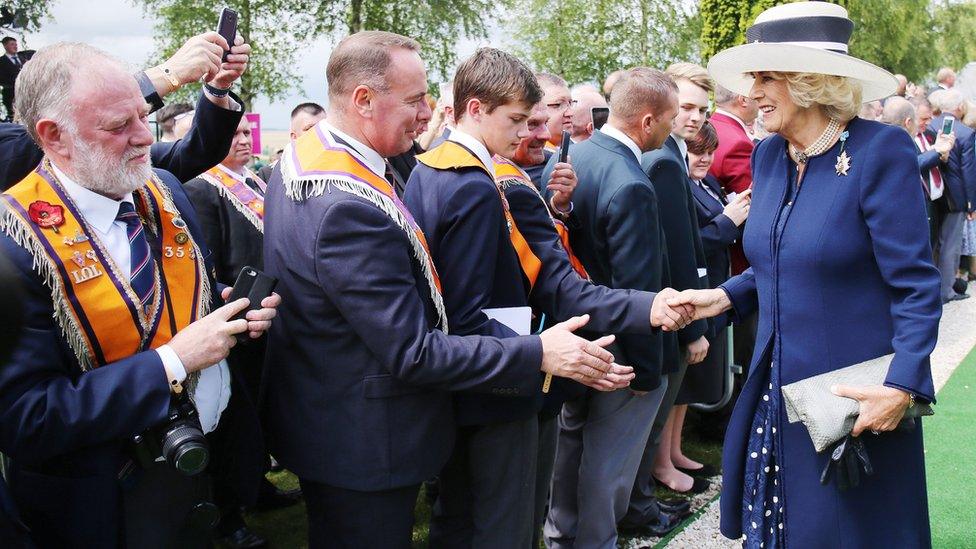
The Duchess of Cornwall met Orangemen who had travelled to at the Ulster Tower for the ceremony
"And it's actually quite difficult to take it all in.
"This field behind me is what my grandfather described - what little he did describe.
"But this is exactly what I imagined he saw in these fields on 1 July 1916.
"On a personal level, it's very, very difficult to put into words.
"But to be sitting in the very fields my grandfather stood in 100 years to the day was a very, very emotional experience."
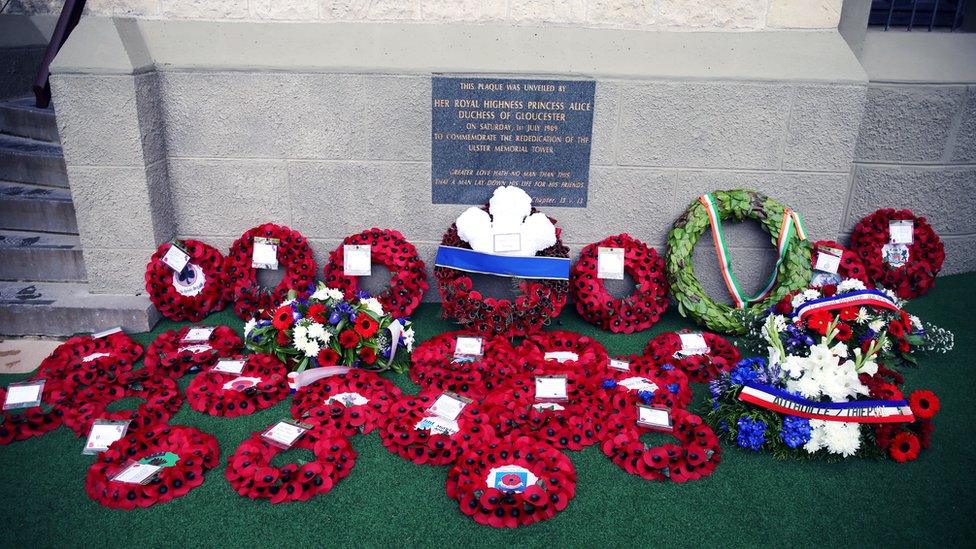
Wreaths were laid by Prince Charles, Northern Ireland Secretary Theresa Villiers and First Minister Arlene Foster
Conor McCracken, a soldier in the Royal Irish Regiment, only recently discovered that his great-grandfather, Dick McCracken, fought at the Somme and survived, although his great-grandfather's brother was killed in the fighting.
On his phone, he carried a latter from Dick that described his experience on that day 100 years ago.
"It was hell," the letter reads.
"We had to go up a hill and the Germans were well prepared to meet us, for away at their fourth line they had machine guns in dozens and they kept blazing away at us.
"Chaps were falling all around me, some never to rise again."
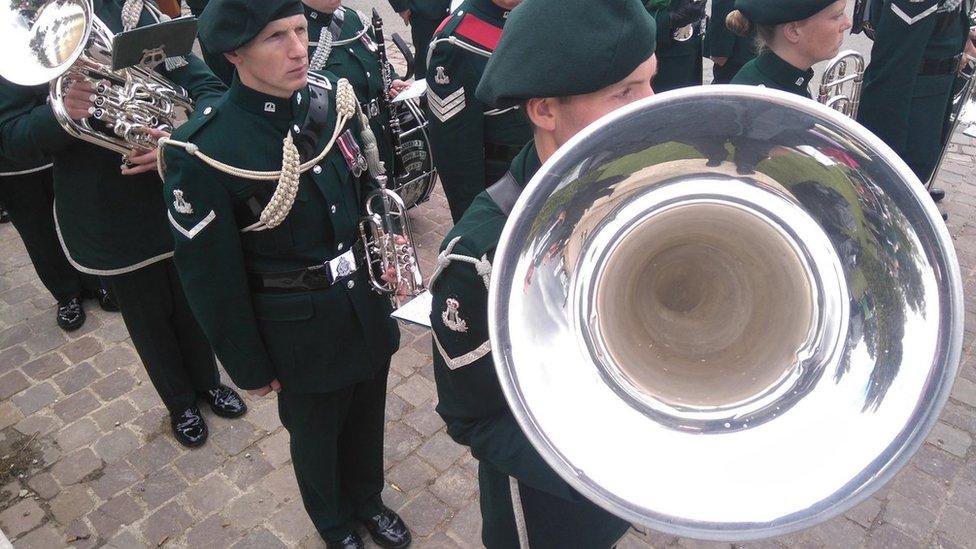
The Royal Irish Regiment played at the Somme centenary event
It was for Dick and his fellow soldiers that wreaths were laid and tributes paid at the Ulster Tower on Friday.
In his address, Archbishop Dr Richard Clarke, the Church of Ireland primate, noted that we would do those soldiers "no honour, if we saw their lives and early tragic deaths as only sad history, or even sacred history".
"They point us beyond themselves and they move us beyond ourselves to a future that they believed would have been for them something of infinite hope and possibility."
As Dick noted in his letter: "I hope to relate the whole experience sitting in an armchair, how I long for it.
"But at the same time, I am going to take as long out of this place as I can for I have seen enough of France and our house has paid its share in this awful war."
- Published1 July 2016
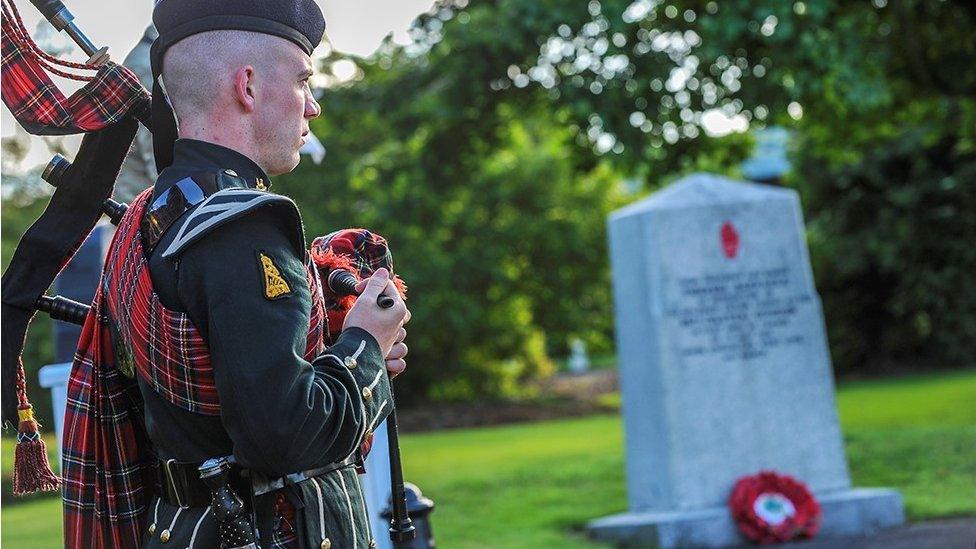
- Published30 June 2016
